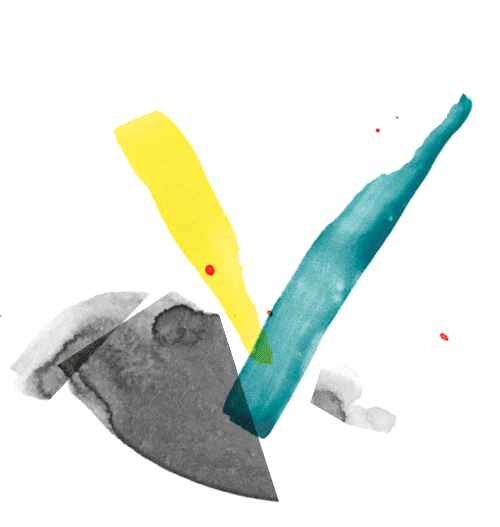

Sign up for our newsletters. You can change the settings or unsubscribe at any time.
Thank you for your subscription. We have sent you an e-mail with a confirmation link.


exp. 1
exp. 2
exp. 3

Castiel Vitorino Brasileiro
Venue: Gropius Bau
Castiel Vitorino Brasileiro
Born 1996 in Vitória, BR – lives and works in Vitória and São Paulo, BR
Castiel Vitorino Brasileiro develops survival and healing strategies for bodies in constant flight, those of the Black and trans populations targeted by a state-sanctioned politics of death. Based on practices adopted from psychology and Afro-Brazilian syncretic religions, her work looks to resignify traumas and turn them into instruments of self-care. It fosters freedom from the violence of procedures authorized by state and capitalist health systems. Her practice also involves organizing collective situations for the purpose of sharing healing practices.
In No antiquário eu negociei o tempo [In the Antique Shop I Negotiated Time, 2018], she poses for a series of photographs that show her bare-chested, looking at the camera, her face covered by masks. The masks were found in an antique shop in Santos, Brazil, where they were advertised as African, even though they had been made with papier-mâché, fur, and wood during a workshop led by a friend of the shop owner. By using these objects on her own body, the artist exposes colonial discourses, foregrounding the exoticization of African cultures and the commercialization of the past. The practices of collecting and the curiosity cabinets that became popular in the sixteenth and seventeenth centuries marked the beginning of a perverse justification of colonial looting and theft—giving rise to the modern museum. They cultivated the symbolic violence that defined the Other as difference and formulated the concept of race. They also created an ontological trap for the Black body, institutionalizing imagery of eroticization and control. Vitorino Brasileiro’s work presents her body—a Black, female body with male sexual organs—as a crossroads for knowledges. Hers is a body capable of incorporating spirits and thus able to liberate those that the West has classified in order to entrap.
Beatriz Lemos
A World Without Bones
Agustín Pérez Rubio
Freiheit für Chile!
Anonymous
Photo album
Teatro da Vertigem
Monograph
COVID-19 VIDEOS
Carlos Motta
Video
Expresiones de la locura: el arte de los enfermos mentales
Hans Prinzhorn
Monograph
Solidarity and Storytelling. Rumors against Enclosure
María Berríos
Essay
By using this website you agree to the use of cookies in accordance with our data privacy policy.

Castiel Vitorino Brasileiro
Venue: Gropius Bau
Castiel Vitorino Brasileiro
Born 1996 in Vitória, BR – lives and works in Vitória and São Paulo, BR
Castiel Vitorino Brasileiro develops survival and healing strategies for bodies in constant flight, those of the Black and trans populations targeted by a state-sanctioned politics of death. Based on practices adopted from psychology and Afro-Brazilian syncretic religions, her work looks to resignify traumas and turn them into instruments of self-care. It fosters freedom from the violence of procedures authorized by state and capitalist health systems. Her practice also involves organizing collective situations for the purpose of sharing healing practices.
In No antiquário eu negociei o tempo [In the Antique Shop I Negotiated Time, 2018], she poses for a series of photographs that show her bare-chested, looking at the camera, her face covered by masks. The masks were found in an antique shop in Santos, Brazil, where they were advertised as African, even though they had been made with papier-mâché, fur, and wood during a workshop led by a friend of the shop owner. By using these objects on her own body, the artist exposes colonial discourses, foregrounding the exoticization of African cultures and the commercialization of the past. The practices of collecting and the curiosity cabinets that became popular in the sixteenth and seventeenth centuries marked the beginning of a perverse justification of colonial looting and theft—giving rise to the modern museum. They cultivated the symbolic violence that defined the Other as difference and formulated the concept of race. They also created an ontological trap for the Black body, institutionalizing imagery of eroticization and control. Vitorino Brasileiro’s work presents her body—a Black, female body with male sexual organs—as a crossroads for knowledges. Hers is a body capable of incorporating spirits and thus able to liberate those that the West has classified in order to entrap.
Beatriz Lemos
Feminist Health Care Research Group
Web archive
Fragments of the Artist’s Diary, Berlin 11.2019–1.2020
Virginia de Medeiros
Diary
Being in Crisis together – Einander in Krisen begegnen
Feminist Health Care Research Group (Inga Zimprich/Julia Bonn)
Online workshop
Solidarity and Storytelling. Rumors against Enclosure
María Berríos
Essay
New Look
Flávio de Carvalho
Performance
Memorial to the Sinti and Roma Victims of National Socialism
Dani Karavan
Memorial
By using this website you agree to the use of cookies in accordance with our data privacy policy.

Castiel Vitorino Brasileiro
Venue: Gropius Bau
Castiel Vitorino Brasileiro
Born 1996 in Vitória, BR – lives and works in Vitória and São Paulo, BR
Castiel Vitorino Brasileiro develops survival and healing strategies for bodies in constant flight, those of the Black and trans populations targeted by a state-sanctioned politics of death. Based on practices adopted from psychology and Afro-Brazilian syncretic religions, her work looks to resignify traumas and turn them into instruments of self-care. It fosters freedom from the violence of procedures authorized by state and capitalist health systems. Her practice also involves organizing collective situations for the purpose of sharing healing practices.
In No antiquário eu negociei o tempo [In the Antique Shop I Negotiated Time, 2018], she poses for a series of photographs that show her bare-chested, looking at the camera, her face covered by masks. The masks were found in an antique shop in Santos, Brazil, where they were advertised as African, even though they had been made with papier-mâché, fur, and wood during a workshop led by a friend of the shop owner. By using these objects on her own body, the artist exposes colonial discourses, foregrounding the exoticization of African cultures and the commercialization of the past. The practices of collecting and the curiosity cabinets that became popular in the sixteenth and seventeenth centuries marked the beginning of a perverse justification of colonial looting and theft—giving rise to the modern museum. They cultivated the symbolic violence that defined the Other as difference and formulated the concept of race. They also created an ontological trap for the Black body, institutionalizing imagery of eroticization and control. Vitorino Brasileiro’s work presents her body—a Black, female body with male sexual organs—as a crossroads for knowledges. Hers is a body capable of incorporating spirits and thus able to liberate those that the West has classified in order to entrap.
Beatriz Lemos
IV: How Fear Can Dismantle a Body. Vis-a-Vis with two of four curators of the 11th Berlin Biennale
María Berríos, Lisette Lagnado
Conversation
A World Without Bones
Agustín Pérez Rubio
Invitation to the Species: Cecilia Vicuña
Tamaas / Cecilia Vicuña
Podcast
Teatro da Vertigem
Monograph
Touching Feeling. Affect, Pedagogy, Performativity
Eve Kosofsky Sedgwick
Monograph
Queer Ancient Ways: A Decolonial Exploration
Zairong Xiang
Monograph
By using this website you agree to the use of cookies in accordance with our data privacy policy.

Castiel Vitorino Brasileiro
Venue: Gropius Bau
Castiel Vitorino Brasileiro
Born 1996 in Vitória, BR – lives and works in Vitória and São Paulo, BR
Castiel Vitorino Brasileiro develops survival and healing strategies for bodies in constant flight, those of the Black and trans populations targeted by a state-sanctioned politics of death. Based on practices adopted from psychology and Afro-Brazilian syncretic religions, her work looks to resignify traumas and turn them into instruments of self-care. It fosters freedom from the violence of procedures authorized by state and capitalist health systems. Her practice also involves organizing collective situations for the purpose of sharing healing practices.
In No antiquário eu negociei o tempo [In the Antique Shop I Negotiated Time, 2018], she poses for a series of photographs that show her bare-chested, looking at the camera, her face covered by masks. The masks were found in an antique shop in Santos, Brazil, where they were advertised as African, even though they had been made with papier-mâché, fur, and wood during a workshop led by a friend of the shop owner. By using these objects on her own body, the artist exposes colonial discourses, foregrounding the exoticization of African cultures and the commercialization of the past. The practices of collecting and the curiosity cabinets that became popular in the sixteenth and seventeenth centuries marked the beginning of a perverse justification of colonial looting and theft—giving rise to the modern museum. They cultivated the symbolic violence that defined the Other as difference and formulated the concept of race. They also created an ontological trap for the Black body, institutionalizing imagery of eroticization and control. Vitorino Brasileiro’s work presents her body—a Black, female body with male sexual organs—as a crossroads for knowledges. Hers is a body capable of incorporating spirits and thus able to liberate those that the West has classified in order to entrap.
Beatriz Lemos
#fight4rojava
Graffiti
Solidarity and Storytelling. Rumors against Enclosure
María Berríos
Essay
III: La familia son quiénes se alegran con nuestros actos diarios. Detrás de las curadoras de la XI
María Berríos, Agustín Pérez Rubio
Conversation
Teatro da Vertigem
Monograph
I: Junto a las curadoras de la XI Berlin Biennale for Contemporary Art
Renata Cervetto, Lisette Lagnado
Conversation
Invitation to the Species: Cecilia Vicuña
Tamaas / Cecilia Vicuña
Podcast
By using this website you agree to the use of cookies in accordance with our data privacy policy.
By using this website you agree to the use of cookies in accordance with our data privacy policy.




